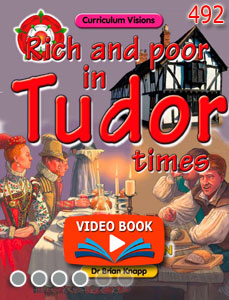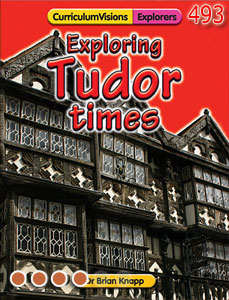From Tudor times onwards, more and more people learned to write. In general, the wealthier you were, the greater your chances of being able to read and write. As a result, most wealthy people were able to read and write, but most peasants were not.
Families viewed the education of boys and girls differently. Most families educated the boys for work and the girls for marriage and running a household. Few girls learned subjects such as mathematics or foreign languages.
To try to bring about more learning for the poor, the wealthy often left money for the foundation of schools as well as university colleges.
One of the best ways of getting on in life was to work for the Church. But to become a priest, you had to go to Oxford or Cambridge universities. If you paid them enough money, they gave you a degree. Only the wealthiest, therefore, became priests.
The wealthiest people hired a private tutor. Merchants, who could only afford to pay modest amounts, sent their sons to a grammar school or a school attached to a cathedral.
Poorer people, such as yeomen farmers, might occasionally be able to pay for their boys to go to a local school. However, when they were needed for sowing seed, lambing or harvesting crops, they did not go to school but worked on the farm instead.
Another way of learning was used by people who could not afford to send their children to any kind of school. This was called apprenticeship, and through it children learned a trade.
The only job you could get if you had not been apprenticed was to be a farm labourer or a servant. But if you learned a trade you could eventually hope to own your own business and so become wealthy.
In Tudor times, you might expect to be apprenticed as one of the following: glover, carpenter, chandler, skinner, fletcher, vintner, tailor, draper, saddler, cordmaker, tanner, butcher, capper, dyer, (black)smith, barber, brewer (who made beer), mercer and baker.
Parents were expected to pay for the teaching of the apprentice. An apprenticeship lasted for between five and seven years. Apprentices would live in the house of their master. There they got training, food and drink.





